|
It seems a gross understatement to say that 2020 has brought on more than just a horrible virus. Our inability to visit loved ones can bring on a wave of loneliness, sadness, despair, or depression. If you have a family, the loneliness is a bit less oppressive than if you are single, but it is still there. Your children cannot go play with their friends as freely and your couple friends aren’t able to come over for dinner. If you are single, your options are even fewer. Regardless of your state in life, however, loneliness has not discriminated in this grueling year. With the promised vaccine on its way, there is room for hope. However, I think it is important to reflect on the movement within our souls this past year. With all of our normal routines and plans taken away, we’ve been stripped to just ourselves or our immediate families. We’ve even been stripped of the sacraments, the Mass, and the community that comes along with parish life. Day after day, many of us have faced the walls of our home and not much beyond that. During this time, we have no doubt experienced bouts of loneliness. I know I have. But has there been an invitation to solitude in there as well? What is the difference between solitude and loneliness? Loneliness is a very human experience of feeling isolated and desiring community. It is not as easily fixed as it used to be, given all of the current restrictions. However, solitude is an invitation from Our Lord to be drawn into a particular relationship with Him--to be focused only on Him without distractions. If courageous enough to accept this invitation (I find myself coming up with excuses to pretend that I don’t hear this invitation), we may find an even deeper restlessness. As St. Augustine famously said in Book 1 of the Confessions: “Thou hast formed us for Thyself, and our hearts are restless till they find rest in Thee.” This restlessness may seem exhausting, especially this year, but in reality it is a great gift. We are made for rest in Christ, and so this restlessness drives us to find Him. Restlessness, however, cannot be truly recognized if we do not accept this invitation to solitude. We may feel it knocking on our door and choose to ignore it with various activities or try to cure it some other way. But its remedy is only found in relationship with Christ, who waits for us in solitude--in the quietest place of our hearts. Some ways that have been helpful for me in growing more comfortable with entering into solitude are finding 15-20 minutes before I go to bed to reflect with God about my day--an examination of conscience of sorts. I think about the parts of my day where God was calling me into deeper relationship-whether that be in a conversation with a friend, 15 free minutes I had where I could have said a rosary but watched YouTube instead, etc. I will imagine that He and I are having a conversation at my kitchen table (it may sound odd, but try it!) and reflect with Him about what happened that day. Most importantly, though, is spending those few minutes before bed in complete silence. This may look different depending on your state in life, but I have found that the silence is what allows me to enter into that solitude with Christ. Once this becomes a regular habit, the loneliness we experience seems more tolerable, because we know that we can enter into solitude with Christ whenever we want to. He becomes our refuge, and we can talk with Him whenever we like. As I look back on 2020 and look forward to 2021, I hope to more readily recognize when Christ is calling me into this particular relationship and to respond willingly. If we find ourselves lonely and aching for community, I hope we remember that the key to healing our loneliness and restlessness is found in solitude, and the invitation to rest in this solitude with Christ is a standing one. Question for Reflection: What are some ways we can grow in our comfortability with solitude or that we can respond to God’s invitation to deepen our relationship with him during this time? For more resources on self-care during this time, please click here.
0 Comments
“According to a 2018 national survey by Cigna, loneliness levels have reached an all-time high, with nearly half of 20,000 U.S. adults reporting they sometimes or always feel alone. Forty percent of survey participants also reported they sometimes or always feel that their relationships are not meaningful and that they feel isolated.” – American Psychological Association. This is a report from 2019 about the rising levels of social isolation and loneliness experienced in the United States. It is not something new, and as days and years progress, it is likely to get worse if we do not act now. So how does the Catholic Church respond to such increasing levels of isolation? Fortunately, the Church has discussed accompaniment as a solution for a very long time. Most recently, it has been discussed at great length throughout the papacy of Pope Francis and in the recent synod on Young People, the Faith, and Vocational Discernment. As recently as last year, Pope Francis in Christus Vivit talked extensively about the Church’s role in preventing loneliness in young people. Still, as the study above shows, loneliness is not something that only young people experience. Pope Francis talks about the untethering and uprootedness of people in this way: “We need to make all our institutions better equipped to be more welcoming to young people since so many have a real sense of being orphaned. … To all these orphans – including perhaps ourselves – communities like a parish or school should offer possibilities for experiencing openness and love, affirmation, and growth. Many young people today feel that they have inherited the failed dreams of their parents and grandparents, dreams betrayed by injustice, social violence, selfishness, and lack of concern for others. In a word, they feel uprooted.…The experience of discontinuity, uprootedness, and the collapse of fundamental certainties, fostered by today’s media culture, creates a deep sense of orphanhood to which we must respond by creating an attractive and fraternal environment where others can live with a sense of purpose.” (Christus Vivit 216) So what does this mean for our parishes or for us as Catholics? Each one of us is called to accompany others on the journey of faith. Christ himself modeled this with his disciples and has charged us to do the same. Accompaniment is fundamental to Christianity. It means building an “intentional relationship that is oriented toward a definitive direction of growth in holiness and transformation in the Person of Christ.” To begin, I would suggest first taking a look at your immediate circle of connections. Family, friends, co-workers, neighbors, etc. should be your first group to encounter and accompany because they are the people you organically have relationships with each day. These are the people most likely to open up to you if they are experiencing troubles. Even then, it is essential to listen and provide a connection to Christ and the Church community. The role of accompaniment in giving someone a link to the broader Catholic community is vital, and acknowledging every baptized person’s role in this calling is essential. As the Art of Accompaniment: Theological, Spiritual, and Practical Elements of Building a More Relational Church discusses, accompaniment can serve as a powerful avenue to welcome and keep someone in the Church in ever uncertain times and events in someone’s life. It can lead to a deeper connection to Christ, a fuller integration into the world at large, and a more authentic sense of their mission to serve Christ and the Church (Art of Accompaniment, 19). Every day there are more and more people who are experiencing isolation, loneliness, and a sense of not belonging. This has only been exacerbated by the current coronavirus pandemic. Current events, personal circumstances such as their health, and many other factors can contribute to feelings of isolation. During this time, I invite you to pray about different ways you can accompany those who are feeling lonely. The Catholic Church can be a refuge in this storm of isolation and meet people where they are. Even if someone is lonely, as one of God’s children, they are never alone, and it is our job as Catholics to remind them of that fact. For more resources on accompaniment, please click here. For more resources to accompany you during the coronavirus, please click here. Each year, I look forward to attending Midnight Mass on Christmas. It is one of those Catholic "hallmarks" that helps us to ring in the celebration of Christmas. This year was no different, and I was able to assist at my Cathedral's celebration of Midnight Mass. As we continue on in the great octave of Christmas, I would like to look back on the readings and texts from the "Mass During the Night," more commonly known as Midnight Mass. “O God, [you] have made this most sacred night radiant with the splendor of the true light…” (Collect, Christmas Mass During the Night). Sometimes I scratch my head trying to make sense of the Collect prayer, the “opening prayer,” used during the Mass. The Collect prayer that we prayed during Midnight Mass, though, is quite fitting for this particular celebration of the Eucharist, as the Church throughout the world gathered together in the quiet stillness of the night to celebrate the birth of Jesus Christ, the “infant [found] wrapped in swaddling clothes and lying in a manger” (Lk 2:12). This “most sacred night” is indeed “radiant with the splendor of the true light," the light of Christ, the light that brightens not only the darkness of the night sky but also the darkness of our world, the darkness that often creeps its way into our own lives and our own hearts. “The people who walked in darkness have seen a great light” (Is 9:1)! When we find ourselves in a dark room, or when the sun begins to set at the end of the day, what do we do? We turn on a lamp; we turn on the lights. When we find ourselves in internal times of darkness, what do we do? We should turn to Jesus Christ, who, as we hear so beautifully articulated in the Proclamation of the Birth of Christ, is the “eternal God and Son of the eternal Father, desiring to consecrate the world by his most loving presence…” “The people who walked in darkness have seen a great light” (Is 9:1)! The words that the prophet Isaiah addressed to us in the first reading from this Mass are so filled with meaning for us, especially as we fumble and flounder in the darkness of our world and in our own lives. For upon us all, “a light has shone” (Is 9:1). We often walk in darkness: the darkness of our own worries and anxieties, the darkness of our own sins and shortcomings, the darkness of loneliness and isolation. Whatever burdens us, Isaiah invites us to be brought from darkness into God’s most marvelous light, which is found in the person of Jesus Christ. Isaiah tells us that “upon those who dwelt in the land of gloom a light has shone” (Is 9:1). The light that shone in the time of Isaiah is the same light that shone on the “shepherds in that region living in the fields and keeping the night watch over their flock” (Lk 2:8). As the shepherds were keeping watch, “the angel of the Lord appeared to them” (Lk 2:9). On that holy night in Bethlehem, only the humble shepherds were aware of the Word becoming flesh—of Jesus being born of the Virgin Mary. Today, the whole world knows of the Light of the World, Emmanuel—“God-is-with-us,” “Wonder-Counselor, God-Hero, Father-Forever, Prince of Peace” (Is 9:5)…our “savior Jesus Christ, who gave himself for us to deliver us from all lawlessness” (Ti 2:14), to deliver us and grant us peace and consolation from all that causes chaos or disorder or stress in our lives. “The people who walked in darkness have seen a great light” (Is 9:1)! Our Holy Father, Pope Francis, reflecting on these beautiful words, talks about light—the permeating theme of the great solemnity that we celebrate at Christmas. Our Holy Father says, “The people who walked–caught up in their activities and routines, amid their successes and failures, their worries and expectations–have seen a great light. The people who walked–with all their joys and hopes, their disappointments and regrets–have seen a great light. In every age, the People of God are called to contemplate this light. … A light meant to shine on every corner of this city, on our fellow citizens, on every part of our lives” (Homily of Pope Francis, 25 September 2015). “The people who walked in darkness have seen a great light” (Is 9:1)! As we continue to celebrate the great Nativity of the Lord—Christmas—we rejoice with Isaiah: “For a child is born to us, a son is given us; upon his shoulder dominion rests. They name him Wonder-Counselor, God-Hero, Father-Forever, Prince of Peace” (Is 9:5). The Psalmist invites us to “exult before the LORD, for he comes; for he comes to rule the earth. He shall rule the world with justice and the peoples with his constancy” (Ps 96: 13). The Lord is forever faithful. We are called to “[proclaim] the marvels of the Wonderful Counselor, the Mighty God, the Eternal Father, the Prince of Peace” (Homily of Pope Francis, 25 September 2015). We do this by serving as beacons of light amidst the darkness of our world, radiating the light, the “abundant joy” (Is 9:2), the love, the “blessed hope” (Ti 2:13) of Jesus Christ, proclaiming with “great rejoicing” (Is 9:2) the “good news of great joy” (Lk 2:10). “The people who walked in darkness have seen a great light” (Is 9:1)! “Let us all rejoice in the Lord, for our Savior has been born in the world. Today true peace has come down to us from heaven” (Entrance Antiphon). Let us join our hearts and voices this Christmas night and proclaim: “Glory to God in the highest and on earth peace to those on whom his favor rests” (Lk 2:14). “Silent night, holy night, wondrous star, lend thy light; with the angels let us sing, Alleluia to our King; Christ the Savior is born, Christ the Savior is born!” (Stille Nacht, Fr. Joseph Mohr) I carry wounds. I carry scars. I carry pains. I carry all of these pieces of sadness, loneliness, challenge, and despair inside me. Some wounds are visible and others are buried deep inside my heart. I have been a part of causing wounds and others have inflicted me with wounds. I have healed from and I have ignored my wounds. I carry wounds but I also am learning how to ask for help in binding them.
I recently attended a retreat that focused on grace and the “wounded healer.” Throughout the time I had the opportunity to reflect on where I am on this life journey and what has happened, is happening, or will happen in the future. Immediately, I thought of Henri Nouwen’s book Wounded Healer and how the paradox of someone who is broken reveals the mystery of discovering how to heal. The retreat led me to a deeper understanding of the interior life, God lives in me and has been broken, but he also wishes to heal and be healed. Nouwen writes, “The man who articulates the movements of his inner life, who can give names to his varied experiences, need no longer be a victim of himself, but is able slowly and consistently to remove the obstacles that prevent the spirit from entering. He is able to create space for Him who heart is greater than his, whose eyes see more than his, and whose hands can heal more than his.” He shows how naming the wounds we experience leads to the natural desire to open up to the grace of the Holy Spirit. Jesus invites us in to create that space. We see how he was an example of healing and woundedness in his ministry, being vulnerable and patient, sacrificing his life in love. We see it in his state of being God and Man, his inviting the twelve, his working miracles for the visibly and the spiritually sick, and even in his silence when he knew what was to come on the cross. Working in ministry I find that aiding in the healing of others comes more easily than letting myself be healed. This theme showed me how difficult it is to expose weaknesses and be vulnerable. Sometimes the simple acknowledgement of a sin or experience is overbearing. In the retreat setting I opened myself up to engage with my wounds and seek guidance in understanding what I will need to heal. I also had to recognize that the healing might not be a quick process. Words from Helen Keller, who dealt with a physical wound of blindness, showed me the wound’s potential to foster strength and growth. She writes, “Face your deficiencies and acknowledge them; but do not let them master you. Let them teach you patience, sweetness, insight.” We all carry wounds. In some form we react to them, hide them, or learn to mend them. One of the prayer services that concluded the retreat involved reflection on the sacrament of Anointing of the Sick. The leader spoke about how we do not hear about this sacrament in the way we do the number of joyful sacraments of First Communion, Confirmation, or Matrimony. In many ways it shows how even those who believe in the power of healing find it difficult to expose their wounds. Showing our wounds reveals a part of us that we are not proud of or afraid of knowing. How different would our world be if it seemed more acceptable to open up and to anoint each other in our physical and spiritual sicknesses! In so many ways it is a privilege to be a part of that sacramental healing, to listen and allow someone to share with you what he or she is going through, or to share something yourself. When we engage with the grace that works in our lives and look at our wounds we see how the two converge. Grace is there to help comfort and guide us in the Holy Spirit. Acknowledging the work of grace and receiving its gifts help us to recognize how our wounds have the ability to make us stronger. Pope Francis spoke about embracing the wounds of Christ in others and how it transforms both them and us. “We need to touch Jesus' wounds, caress Jesus' wounds, bind them with tenderness; we must kiss Jesus' wounds, literally. Just think: what happened to St. Francis, when he embraced the leper? The same thing that happened to Thomas (the apostle): his life changed”. Our lives change when we encounter and embrace Jesus, others, and ourselves in our state of being wounded. Like the sacrament of healing, the visible act of carrying our woundedness and asking for healing leads us to love and receive better. Sophie Jacobucci serves as a second-year Echo Apprentice in the Diocese of Manchester, NH. Tomorrow, we arrive at Christmas Eve. In the rush of all of the “things we must do” do we stop and reflect on the one who is the true must for us, the Incarnate Son of God, Our Lord Jesus Christ? Stop for a moment and look at a Nativity scene. I mean really look. What do you see? Do you see simply art, or a depiction of a past event, or do you see the one who is the Incarnate Son of God? Our God, who created us, came to us, is with us, is for us, to save us! We are not alone in the vast universe, left adrift. No, our God came to us in a way that we would not expect of one who is all-powerful, he came in the innocent helplessness of a baby. This baby was not born in a palace or even a house, but in a borrowed spot out back where only animals lived. The first people who visited him and his parents were not friends and family, but poor shepherds. The King of Kings came as the Poorest of the Poor. He came to save us not just in the future, but now. We are to assist him in his mission as the third verse of the
Christmas carol “O Holy Night” tells us: Truly He taught us to love one another; His law is love and His gospel is peace. Chains shall He break for the slave is our brother; And in His name all oppression shall cease. Sweet hymns of joy in grateful chorus raise we, Let all within us praise His holy name. Like the shepherds and all who have gone before us in faith, our encounter with the Prince of Peace offers us the opportunity to be freed from all that oppresses us in life and the mandate to help others to find this freedom. As Pope Francis teaches us: “The joy of the gospel fills the hearts and lives of all who encounter Jesus. Those who accept his offer of salvation are set free from sin, sorrow, inner emptiness and loneliness. With Christ joy is constantly born anew… I invite all Christians, everywhere, at this very moment, to a renewed personal encounter with Jesus Christ, or at least an openness to letting him encounter them; I ask all of you to do this unfailingly each day. No one should think that this invitation is not meant for him or her, since “no one is excluded from the joy brought by the Lord.” (Evangelii Gaudium, 1, 3). This Christmas and always, our prayer as the team of the Catholic Apostolate Center is that your encounter with Christ today and every day brings such joy that you must share it with all! Blessed Christmas! Fr. Frank Donio, S.A.C. is the Director of the Catholic Apostolate Center |
Details
Archives
July 2024
Categories
All
|
About |
Media |
© COPYRIGHT 2024 | ALL RIGHTS RESERVED

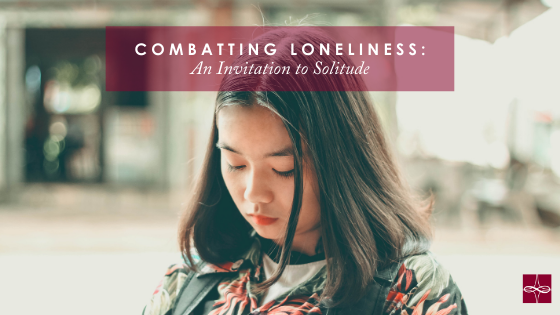

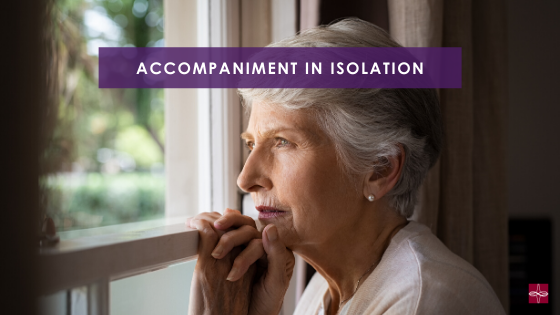

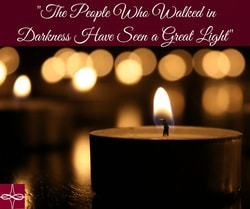

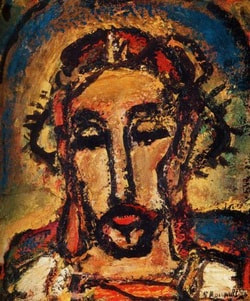
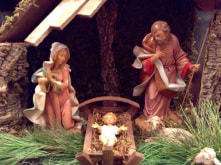
 RSS Feed
RSS Feed